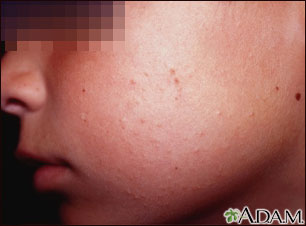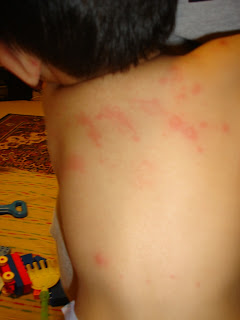Acetaminophen May Increase Risk of Wheezing, Asthma, Allergies
As a parent and pediatrician, I have considered acetaminophen (Tylenol) to be one of the medications I could pretty much always safely use for my children and patients.
However, a new study published in the Annals of Allergy, Asthma & Immunology has raised some important concerns. 345 women were followed from early pregnancy through their child's first birthday. Associations between acetaminophen use during pregnancy and the development of wheezing during the first year of life were investigated.
What was found is the following:
Acetaminophen use during early pregnancy was unrelated to respiratory events during the first year of life. However, acetaminophen exposure during mid to late pregnancy was associated with nearly double the risk of wheezing (odds ratio 1.8) and slightly more than double the risk of wheezing that caused sleep disturbance (odds ratio 2.1) during the first year of life.
Why might his be the case?
Acetaminophen depletes an imprtant antioxidant (glutathione) from the body. When glutathione is depleted, oxidative inflammation increases. This may be the reason why another recent study published in the British medical journal Lancet found a dose-response relationship between childhood acetaminophen exposure and developemnt of asthma and allegric disease.
Bottom line?
Although acetaminophen is still appropriate for fever or pain that is causing significant discomfort, use it cautiously beyond mid-pregnancy and in young children whose immune systems are still developing. The overuse of acetaminophen (both as a comfort measure in the absence of significant fever or pain, or as part of recently discouraged OTC children's cough and cold preparations) may be playing a role in the rise of asthma and allergic disease in our kids.
However, a new study published in the Annals of Allergy, Asthma & Immunology has raised some important concerns. 345 women were followed from early pregnancy through their child's first birthday. Associations between acetaminophen use during pregnancy and the development of wheezing during the first year of life were investigated.
What was found is the following:
Acetaminophen use during early pregnancy was unrelated to respiratory events during the first year of life. However, acetaminophen exposure during mid to late pregnancy was associated with nearly double the risk of wheezing (odds ratio 1.8) and slightly more than double the risk of wheezing that caused sleep disturbance (odds ratio 2.1) during the first year of life.
Why might his be the case?
Acetaminophen depletes an imprtant antioxidant (glutathione) from the body. When glutathione is depleted, oxidative inflammation increases. This may be the reason why another recent study published in the British medical journal Lancet found a dose-response relationship between childhood acetaminophen exposure and developemnt of asthma and allegric disease.
Bottom line?
Although acetaminophen is still appropriate for fever or pain that is causing significant discomfort, use it cautiously beyond mid-pregnancy and in young children whose immune systems are still developing. The overuse of acetaminophen (both as a comfort measure in the absence of significant fever or pain, or as part of recently discouraged OTC children's cough and cold preparations) may be playing a role in the rise of asthma and allergic disease in our kids.



Comments
Post a Comment
Thanks for taking the time to comment on this blog's posts! Let's keep the discussion engaging and free of frivolous advertising or vulgarity. It's a family show, folks!